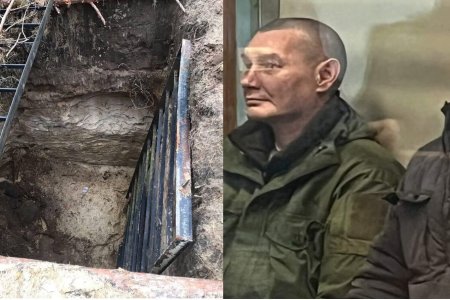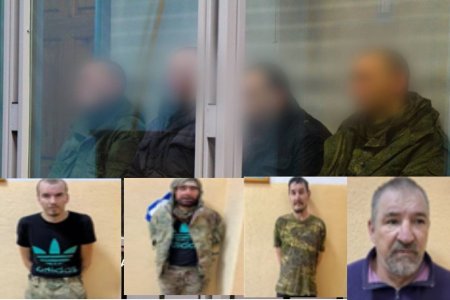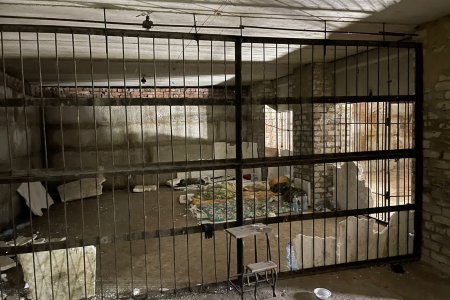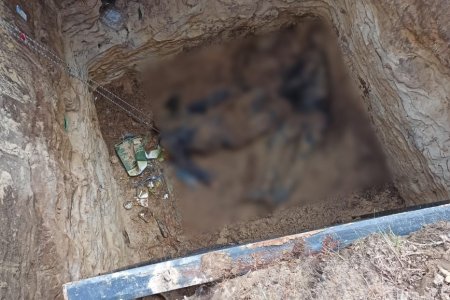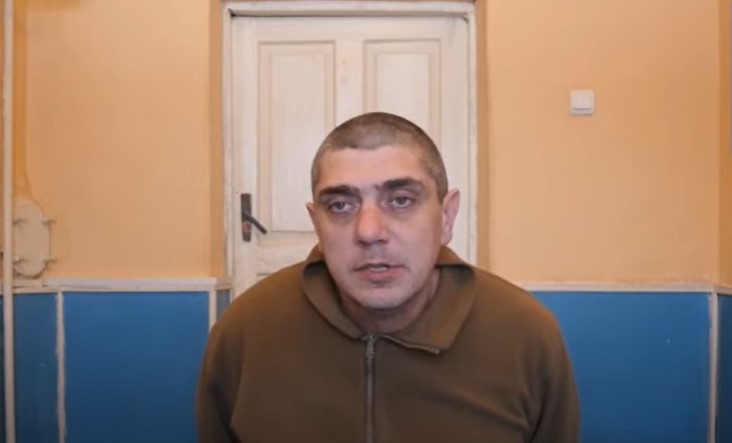
A Ukrainian prisoner of war is about to go on ‘trial’ in Russia on charges that the Russian authorities have no right to lay, and under circumstances that suggest that this will be the latest of many show trials since Russia first invaded Ukraine in 2014.
The Russian state-controlled TASS news agency reported on 22 February that the trial was about to begin of Ukrainian marine Anton Cherednyk at the Southern District Military Court in Rostov. This is a court which has been notorious since 2015 for sentencing Crimean Tatar and other Ukrainian political prisoners to huge terms of imprisonment in the absence of any recognizable crime or evidence to back up flawed charges.
This is the first time that a Ukrainian POW will be on trial in Russia since the latter’s full-scale invasion on 24 February 2022. The prosecution also differs in one crucial detail from Russia’s seizure and illegal imprisonment of 24 Ukrainian naval seamen in 2018, or the grotesque ‘trial’ and death sentences passed on three foreign nationals enlisted in Ukraine’s Armed Forces by the Russian proxy ‘Donetsk people’s republic’. This time, Russia is not necessarily violating the Geneva Convention relative to the Treatment of Prisoners of War. The latter prohibits the prosecution of a POW merely for having fought for a party to the conflict. A prisoner of war can, however, be prosecuted for criminal offences, and should be tried for grave breaches of the Geneva Convention, for example, through the deliberate killing of civilians. All POWs must, however, be treated properly and receive a fair trial. There are legitimate grounds for doubting how the supposed ‘confession’ by Cherednyk was obtained, as well as concerns about the validity of the charges against him, not to mention Russia’s right to put him on trial on Russian territory.
Cherednyk is facing four charges from Russia’s criminal code: ‘armed seizure of power’ (Article 278); ill-treatment of the civilian population, the use in an armed conflict of prohibited means and methods (Article 356 § 1); murder (Article 105 § 2) and ‘undergoing training for the purpose of carrying out terrorist activities’ (Article 205.3).
Russia’s Investigative Committee announced in June 2022 that charges had been brought against Anton Cherednyk who, it claimed, “had killed a resident of Mariupol for the incorrect pronunciation of a word in the Ukrainian language.”
It is asserted that, on 27 March 2022 in the urban settlement of Myrne Cherednyk stopped two men and ordered them to lie on the ground. According to TASS, “they showed him their documents, but he demanded that they pronounce a phrase in Ukrainian; shooting in the air from a machine gun to scare them. Using as pretext incorrect pronunciation, Cherednyk shot and killed one of the men”.
It is alleged that the other man got away, with the charges against Cherednyk presumably based on this individual’s testimony, as well as on a videoed ‘confession’ from Cherednyk, posted on YouTube nine months ago. The latter is very obviously a montage, rather than continuous speech, and is like all of the videos produced by Russia’s FSB and the so-called ‘state security ministries’ of Russia’s proxy Donetsk and Luhansk people’s republics’ in following no rules of procedure for obtaining testimony. The people held prisoner in all such videos are questioned by a person who cannot be seen, and there is nothing to suggest that they have access to independent lawyers. In essentially all of the cases where the person has later either gained access to a proper lawyer or been released, they have confirmed that such ‘confessions’ were obtained through torture (beatings, electric shocks or other) as well as threats of reprisals against their family.
The same methods have been seen since Russia seized control of Mariupol. In several cases, people who were taken by the invading forces to Russia have been seen on video claiming, in garbled fashion, that Ukrainian soldiers were behind war crimes that the entire international community knows that Russia committed. Russia is particularly using such methods to try to blame Ukraine for its bombing of the maternity hospital in Mariupol on 9 March 2022 and of the Drama Theatre with the likely deaths of 300 or more civilians on 16 March. Even if the person who is testifying against Cherednyk in this case is a genuine Ukrainian civilian, there can be no certainty as to how he was persuaded to provide the testimony. The vast majority of ‘trials’ of Ukrainian political prisoners are, in fact, based on testimony from ‘secret witnesses’ whose words (and even identity) cannot be verified.
There are also clearly absurd elements to the indictment. It is claimed that Cherednyk asked the two men to pronounce the word «паляниця» [‘palianytsia’]. The word refers to a type of bread, but has become a kind of code word for distinguishing Ukrainians from Russians, since the latter cannot pronounce the word correctly. If Cherednyk asked the two men to pronounce the word, this would have been because he suspected them of being Russian. It fits Russian anti-Ukrainian narrative, but seems extremely far-fetched to suggest that he would have shot a civilian for ‘incorrectly pronouncing’ the Ukrainian word. If he shot a Russian soldier, unless it could be proven that the man had surrendered, this would not constitute a crime for which Russia would have any right to bring charges.
Scepticism is only exacerbated by the other charges that Russia has thrown in. The country which invaded Ukrainian territory is also accusing a Ukrainian marine of ‘violent seizure of power’ which is simply grotesque and profoundly cynical.
See also:
